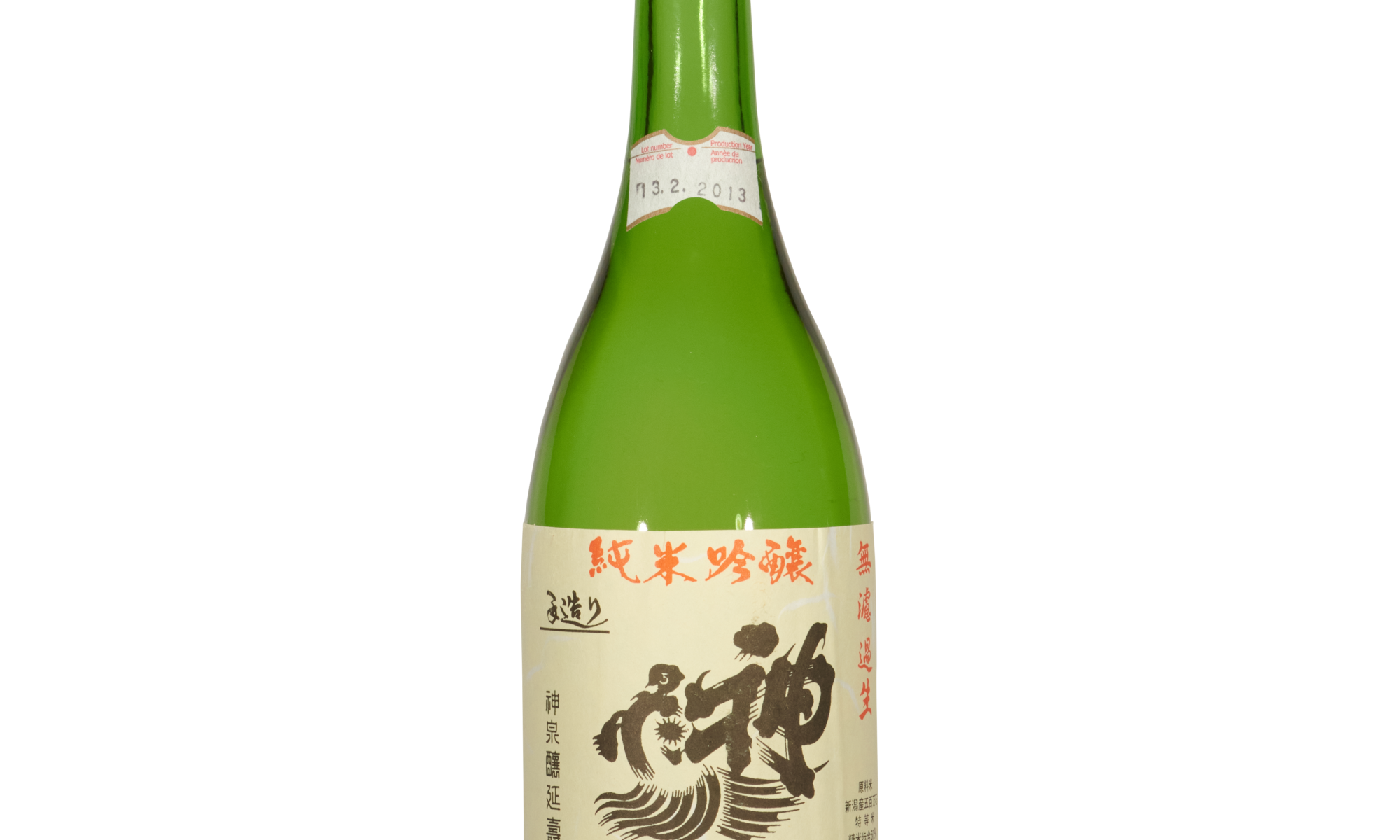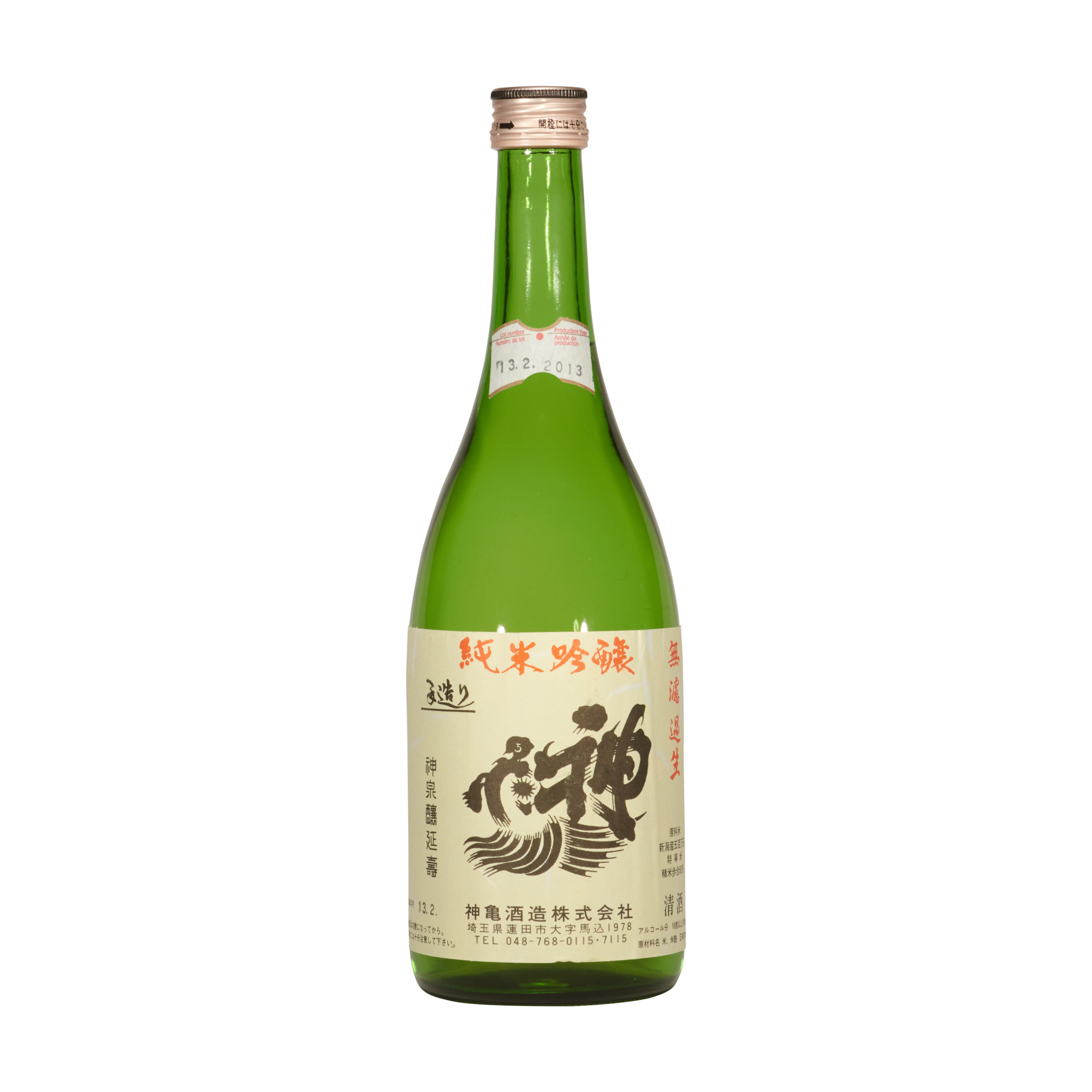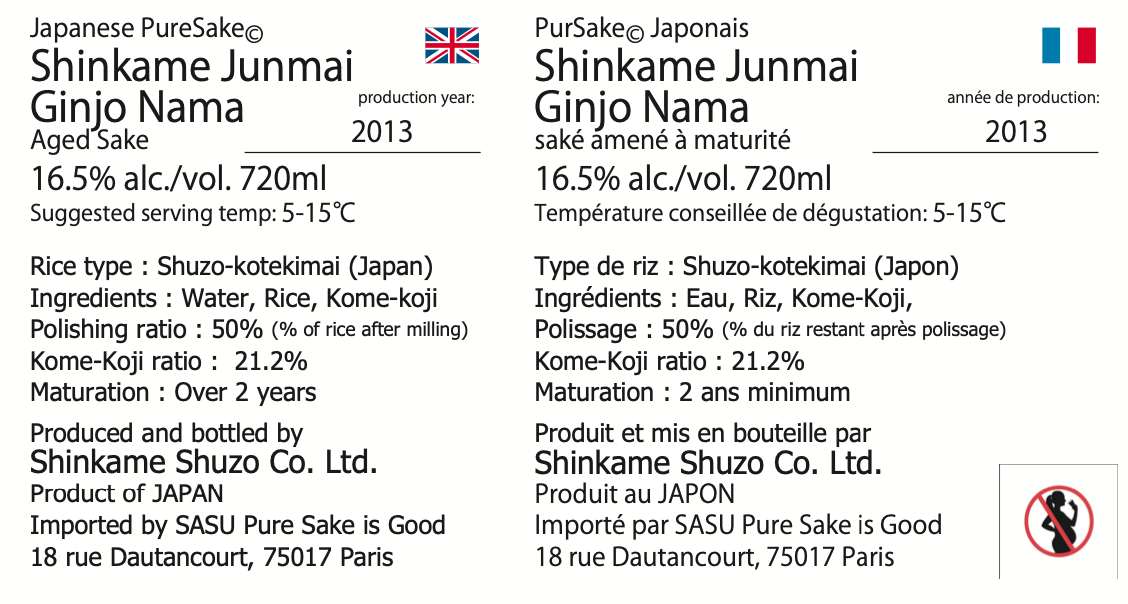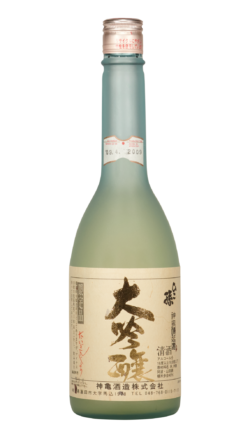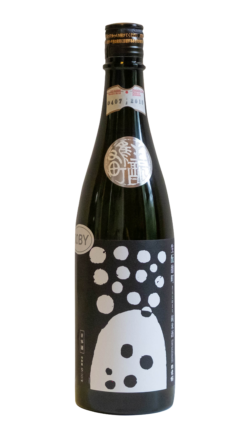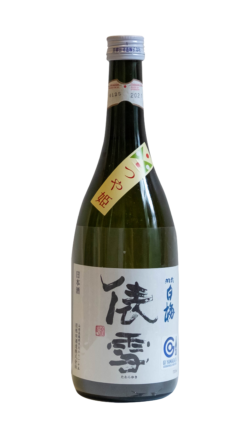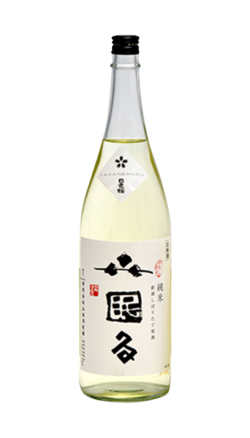| Weight | N/A |
|---|---|
| Sizes | N/A |
| Type of sake | |
| Brewery | Shinkame |
| Brassé par | |
| Prefecture | Saitama |
| Vintage | 2013 |
| Volume | 72cl |
| Alcohol | 16.5% |
| Temperature | 7-20°C |
| Method | Sokujo moto |
| Junmai | Yes |
| Ingredients | Eau, Kome- Koji, Levures, Riz |
| Type of rice | Miyama-nishiki |
| Origin of rice | Nigata prefecture |
| Yeast | Kyugo n°9 |
| Komekoji | 21.2% |
| Cuisson | |
| Namazake | Yes |
| Polishing | 50% |
| Ginjo | Yes |
| Muroka | Yes |
| Maturation | 6 months minimum |
| Press |
Shinkame Junmai Ginjo Muroka Nama 2013
4.500,00 €
It is the little brother of the shinkame sake Junmai Ginjo Funakuchi 2013. A Namazake of which it is rare to find such an old vintage due to the difficulties of conservation. A perfect balance between freshness and sweetness, we are completely on the round and deep taste of rice, with always this fermented finish. This sake would gladly accompany, with a disconcerting ease, a whole meal.
Shinkame Junmai Ginjo Muroka Nama 2013
4.500,00 €Shinkame Junmai Ginjo Muroka Nama 2013
It is the little brother of the shinkame sake Junmai Ginjo Funakuchi 2013. A namazake of which it is rare to find such an old vintage due to the difficulties of conservation. A perfect balance between freshness and sweetness, we are completely on the round and deep taste of rice, with always this fermented finish.
Accords d’excellence
This sake would gladly accompany, with a disconcerting ease, a whole meal.
Informations sur la brasserie Shinkame
Established in 1848 in Saitama, the literal translation of the brewery's name is "holy turtle". Legend has it that many generations ago there was a shrine behind the brewery that celebrated the god of wisdom. A turtle lived there and was considered to be the messenger of this god.... more prosaically the turtle is an animal that lives very long, sometimes beyond the life of humans. It is a symbol of longevity.
After fighting for the revival of traditional sake since 1966, in 1987 Shinkame Brewery became the first brewery to produce only Junmai sake (pure rice sake)
It makes Kome-koji using the koji-buta method for all of its sake, which is the most labour-intensive and artisanal method of production. Some breweries use the kojibuta method only for their highest quality sake.
The brewery ages its sake for a minimum period of 2 to 3 years, even for its standard products. This ageing makes the sake smooth, complex and melts on the palate.

